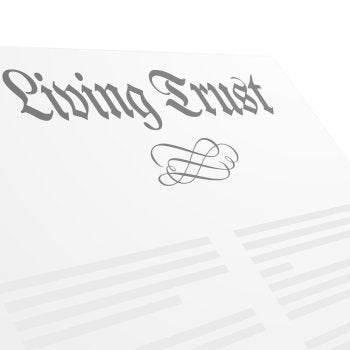-
Should You File a Personal Injury Claim After a Dog Bite?
 After you suffer a personal injury from a dog bite, contact a firm with personal injury lawyers serving Tracy. A personal injury lawyer can evaluate the facts of your case and determine if you may be entitled to compensation.
After you suffer a personal injury from a dog bite, contact a firm with personal injury lawyers serving Tracy. A personal injury lawyer can evaluate the facts of your case and determine if you may be entitled to compensation.If you have sustained a serious injury after a dog bite that has cost you money in medical bills, lost wages, or general pain and suffering, you most likely have a personal injury claim. Dog bite costs exceed over $1 billion in the United States alone. Because of the bacteria living in a dog’s mouth, dog bites can turn fatal if the wound becomes infected. Dog bite laws vary depending on the state, and only an injury lawyer knows the ins and outs of local laws and is familiar with state courtrooms. Contact a lawyer to discuss your personal injury claim if you are hurt, have incurred any bills, or have had your property damaged.
-
What Happens During the Insurance Investigation in a Personal Injury Case?
 If you been hurt in an accident, the first thing you should do after seeking immediate medical care is to contact a personal injury lawyer near Tracy . Almost everyone feels understandably confused and overwhelmed after suffering a personal injury. Unfortunately, even your own insurance company does not always have your best interests at heart, and is usually only looking out for their bottom line. Continue reading to learn more about how insurance companies will investigate your claim.
If you been hurt in an accident, the first thing you should do after seeking immediate medical care is to contact a personal injury lawyer near Tracy . Almost everyone feels understandably confused and overwhelmed after suffering a personal injury. Unfortunately, even your own insurance company does not always have your best interests at heart, and is usually only looking out for their bottom line. Continue reading to learn more about how insurance companies will investigate your claim.Recorded Statement
After a personal injury, insurance companies will begin the investigation by asking you a number of questions to collect information about the facts of the accident. Insurance companies will also try to secure a recorded statement where the injured person describes the accident and specifies her injuries. Never give a recorded statement. Instead, let your personal injury lawyer speak to the insurance company to make sure your rights are protected. Otherwise, anything you say may be used against you.
Personal Information
Remember, insurance companies want to collect any negative information they can to lower the value of your personal injury claim. After getting your statement, the next step in the investigation is to check all proprietary insurance claims databases to find out whether you have ever filed a personal injury or property damage claim. Insurance companies will also Google you and investigate your Facebook page to try to prove that your personal injury is not as significant as you say.
Medical Records
Insurance companies never trust injury lawyers to turn over all information. The final step in an investigation is to secure all your medical records, even if you have already given your diagnosis and documented all expenses. An insurance company will likely send you an authorization form that allows them to access the records themselves. Never sign the authorization unless your personal injury lawyer advises you to do so. You may inadvertently give the company access to your lifetime of medical records, which they can use against you.
-
Starting a Conversation About Estate Planning
 Did you know that over half of Americans with children do not leave wills? Estate planning near Tracy is essential if you want to ensure that your assets are handled well and that your family does not engage in unnecessary disputes. To obtain legal advice about your specific situation, always consult with a lawyer who handles estate planning. Keep reading to find out how to start a productive conversation with your loved ones about your estate’s administration.
Did you know that over half of Americans with children do not leave wills? Estate planning near Tracy is essential if you want to ensure that your assets are handled well and that your family does not engage in unnecessary disputes. To obtain legal advice about your specific situation, always consult with a lawyer who handles estate planning. Keep reading to find out how to start a productive conversation with your loved ones about your estate’s administration.Select Family Roles
When it comes to planning your last will and testament, estate attorneys regularly advise their clients to select the family members who are best fit for different roles before holding a family meeting. When people ask for family input, feelings can get hurt and emotions can run high. By picking the right candidate for your health care proxy, financial power of attorney, or guardian for your children on your own, you can then use your family meeting to simply explain each person’s role—without asking for feedback.
Set a Good Tone
Of course, your conversation about estate administration should be as pleasant as possible. Try to strike a gentle tone, but remember to stand firm in your convictions. You may want to consider asking your will lawyer to join the conversation, as well. Your attorney can provide an expert’s analysis of estate law while serving as a neutral facilitator.
Prepare Necessary Paperwork
Once you’ve decided whom you want to handle the key roles related to your estate, it is time to contact an estate planning attorney. A will lawyer will help you secure the documents you need to cement your wishes and ensure that they are carried out according to your exact wishes. Your attorney can also verify that you have forms you may not have considered, like an Advance Healthcare Directive. This document states your preferences for medical treatment and is essential to have as part of your living will.
-
Comparing Wills and Trusts
Although making plans for your estate may be uncomfortable, it is one of the most important things you can do for your family. Two options you have are wills and trusts. Wills are legal documents that detail your final wishes, from who you wish to receive the assets in your estate to who should gain guardianship of your pets. Trusts can be set up while you’re alive and are a pool of assets that can be used by your beneficiaries. When you are alive, you are the beneficiary of your trust, and after your death, it will pass on to the people you have designated. Let one of the attorneys in Tracy at Bakerink, McCusker & Belden help you understand whether a will or trust is appropriate for your needs and help you set one up that adequately protects your family. Start a conversation with your family about estate planning by sharing this information.

-
Exploring the Differences Between a Living Trust and a Will
 Many people are familiar with the last will and testament, which is a signed legal document that establishes how a person’s property is to be divided upon his or her death. Wills also serve to designate a guardian for minor children. Drafting wills near Tracy and Manteca may be done at any point in a person’s lifetime–not necessarily only when a person is of advanced age or has a serious illness. Wills can be amended at any time that the individual wishes. However, wills are not the only component of the estate planning process.
Many people are familiar with the last will and testament, which is a signed legal document that establishes how a person’s property is to be divided upon his or her death. Wills also serve to designate a guardian for minor children. Drafting wills near Tracy and Manteca may be done at any point in a person’s lifetime–not necessarily only when a person is of advanced age or has a serious illness. Wills can be amended at any time that the individual wishes. However, wills are not the only component of the estate planning process.Lawyers who specialize in estate planning can also help clients establish living trusts. As the term suggests, these structures govern property management during a person’s lifetime, as well as after the person’s death. Some people choose to establish a living trust because it can bypass probate of assets and prevent information about financial assets from becoming publicly accessible. A person can be named as the trustee of his or her own living trust. Upon becoming incapacitated or dying, a successor trustee takes over these responsibilities.
-
Who Has the Right to Pursue a Wrongful Death Case?
After losing a loved one in an accident, you may choose to consult an accident attorney about your legal rights and options. If your loved one’s death can be attributed to the neglectful or reckless actions of another party, you may be able to file a wrongful death lawsuit against that person. As your attorney can explain to you, a wrongful death lawsuit is a civil action, which is not the same as criminal charges such as manslaughter. An attorney in Tracy or Manteca can evaluate your case and your relationship to the decedent. The rules regarding which individuals may be eligible to pursue a wrongful death case vary from state to state.

Family Members and Partners
Your attorney may file a wrongful death lawsuit on your behalf if you are an immediate family member of the decedent. Under California law, this is defined as the decedent’s surviving spouse and surviving children. The decedent’s domestic partner may also file a wrongful death lawsuit. These individuals essentially have the first right to file a wrongful death claim. If there are no surviving individuals in the decedent’s line of descent, then other individuals may be eligible to bring a claim.
Extended Family Members
Assuming that the first category of individuals is no longer living, the state of California allows extended family members to file a claim. Specifically, these include any individuals who would be beneficiaries of the decedent’s property in accordance with the state of California’s laws of intestate succession. This category would typically include the surviving parents of the decedent or the decedent’s surviving siblings.
Financial Dependents
Even if you do not fit into either of the above categories, you can still consult an attorney if you lost a loved one because of the actions of another person. You may be eligible to bring a claim against the responsible party if you can prove that you were a financial dependent of the decedent. This may apply if you were the decedent’s putative spouse or child of a putative spouse. Other financial dependents may include the decedent’s stepchildren and parents.
-
What Are the Top Mistakes Made in Estate Planning?
Have you visited an estate planning attorney near Tracy or Livermore yet? If not, you’re already making one of the most common mistakes in estate planning, which is to delay the process of creating your will and making other key decisions for your estate. Even if you aren’t yet sure whether you need a trust or a living will, it’s a good idea to visit an estate planning lawyer to learn about your options.
To hear about three additional common mistakes in estate planning, watch this video. These financial experts offer some points of consideration for you to discuss with your will lawyer, such as whether your beneficiary forms are properly updated and whether you have planned for minimal estate taxes.
-
A Look at Common Mistakes People Make in Wills
 Establishing a will is an important step for everybody, but one simple mistake can prevent your final wishes from being carried out. Fortunately, it’s easy to avoid these mistakes—as long as you know what to expect. Working with an estate planning attorney near Tracy can help you steer clear of these common will errors:
Establishing a will is an important step for everybody, but one simple mistake can prevent your final wishes from being carried out. Fortunately, it’s easy to avoid these mistakes—as long as you know what to expect. Working with an estate planning attorney near Tracy can help you steer clear of these common will errors:Neglecting to include all of your property. If asked to name everything they own, most people would probably forget to include a few things. If your will does not include a residuary clause and you do not list everything you own, your will is considered incomplete and your remaining assets will be disposed of by the state. Meeting with a will attorney will help you ensure that all of your assets are accounted for and that nothing is overlooked.
Failing to appoint the right executor. Choosing an executor to administer your estate is one of the most important aspects of drawing up a will, so make sure that you select a trustworthy individual. In the event that your executor is no longer the best person for the task, you will need to alter your will and select a new executor.
Forgetting about estate taxes. When drawing up a will, many people neglect to take estate taxes into account. While you may assume that your estate is not worth enough to be taxed, you should still talk to a will attorney to determine which of your assets are taxable. Estate tax laws change from time to time, so an attorney can ensure that you are kept up to date on the current regulations.
Include all beneficiaries. Before you establish your will, you should take some time to determine who your beneficiaries will be. While you can change your will later, for the sake of convenience it’s best to decide who you wish to include. Generally, you should not have witnesses who are named as beneficiaries in your will.
Failing to update after major life changes. If you have gotten married or divorced, welcomed a child into your family, moved, or started a business, that change should be incorporated into your will. It’s easy to put off these adjustments, but the sooner you change your will, the sooner you will have peace of mind.
-
Answers to Your Questions About Writing a Will
 There are many factors to consider when writing a last will and testament. Before you meet with a lawyer to discuss estate planning near Tracy and Livermore, you should write a list of your assets and consider which beneficiaries you wish to leave them to after your passing. You may also wish to write a list of questions you have for your estate planning lawyer ; he or she is your best source of information regarding estate administration.
There are many factors to consider when writing a last will and testament. Before you meet with a lawyer to discuss estate planning near Tracy and Livermore, you should write a list of your assets and consider which beneficiaries you wish to leave them to after your passing. You may also wish to write a list of questions you have for your estate planning lawyer ; he or she is your best source of information regarding estate administration.Do I Need a Will?
If you are a legal adult, it might be a good idea for you to have a will even if you do not yet have significant assets. Should something happen to you and you pass away without a will, this is known as dying intestate. In this case, your state’s intestate succession laws will dictate who will inherit your property. This may not be in accordance with your preferences. If you have a minor child and you die without a will–and if the other parent cannot care for the child–then the state will designate a guardian for your child . The state’s laws will also determine which property the child can inherit.
What Elements Are Necessary for Legal Validity?
The laws of estate planning vary from state to state; however, most wills must have certain elements to be legally valid. For example, you must be at least 18 years old and you must be of sound mind. The will must contain at least one provision for the guardianship of minor children or for the distribution of property. It must appoint an executor and it must state specifically that the document is the testator’s will. Additionally, you and two witnesses must sign the document.
Shouldn’t My Spouse and I Have a Joint Will?
If you and your spouse file a joint tax return, you might assume that it makes sense to have a joint will. But in fact, this is almost never a good idea, since it’s unlikely that you and your spouse will pass away at the same time. Additionally, you or your spouse may have property that is held individually, rather than jointly.
-
Discussing Your Estate Plan with Your Family
The passing of a family member is a difficult event to cope with, but it can be even more challenging when the surviving family members begin to disagree about the decedent’s assets. If you’ve met with an estate planning attorney near Tracy or Manteca, you’ve already taken an important step toward providing for your loved ones and preserving familial harmony. To ensure that all family members clearly understand what your wishes are, you may decide to call a family meeting to discuss your estate planning decisions.
Get Your Paperwork Notarized Beforehand
Your preferences regarding the distribution of your assets or the succession of your family business are your decisions alone. While you may decide to consider other family members’ feedback, you should make it clear that you have the final say. This may prevent some arguments among family members. To send a clear message that you’ve already made your decision, have your estate planning attorney finish drawing up the documents and get them notarized before you sit down with your family.Consider Using a Neutral Facilitator
 If you feel that your estate planning decisions may create some discord or confusion, it may be a good idea to ask your lawyer to serve as aneutral facilitator for the discussion. You may even choose to hold the family meeting at your lawyer’s office to establish a professional ambience for the discussion. Your estate planning attorney can answer your family’s questions about various aspects of your will, trust, and similar matters.
If you feel that your estate planning decisions may create some discord or confusion, it may be a good idea to ask your lawyer to serve as aneutral facilitator for the discussion. You may even choose to hold the family meeting at your lawyer’s office to establish a professional ambience for the discussion. Your estate planning attorney can answer your family’s questions about various aspects of your will, trust, and similar matters.Avoid Making Emotional Decisions
Designating an executor, trustee, guardian, healthcare proxy, and financial power of attorney may involve making difficult decisions. It’s advisable to try to leave emotions and family attachments out of these decisions. Instead, carefully consider which person would be best able to handle these important roles. Remember that you can designate a non-family member. By avoiding making emotional decisions, you can explain your reasoning to your family members without upsetting anyone. For example, you might designate one of your daughters as a healthcare proxy because she is a registered nurse, instead of assigning that role to your sibling.
RECENT POSTS
categories
- Uncategorized
- Personal Injury
- Estate Planning
- customer reviews
- Financial Planning
- Work Injury
- Tracy Lawyer
- Attorney
- Dog Bites
- Auto Accident
- Slip and Fall
- Car Accident
- Living Trusts
- Trust Administration
- Living Will
- Wrongful Death
- Probate
- advanced health care directive
- About Us
- Russian linguist
- Infographic
- Wills and Trusts
- Will
- Car Crash
- Executor
- Whiplash Injuries
- Estate Taxes
- Slip and Fall Injury
- Auto Accident Claims
- Intestate Succession
- Disinheritance
- Trust Administrators
- Cycle Accident
- Accident
